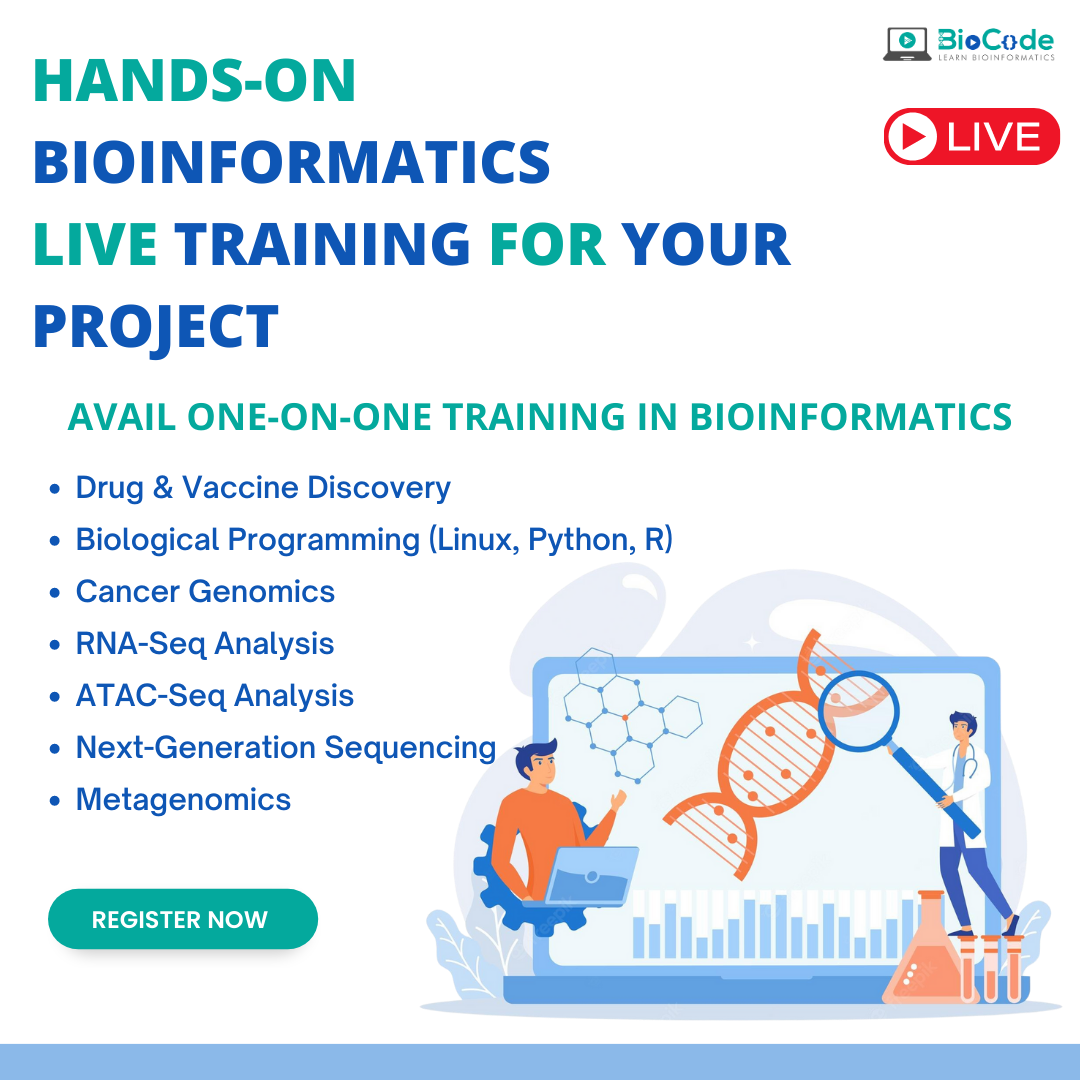Excitement About Bioinformatics Tutor
Excitement About Bioinformatics Tutor
Blog Article
The Buzz on Bioinformatics Tutor
Table of ContentsSee This Report about Bioinformatics TutorWhat Does Bioinformatics Tutor Mean?5 Simple Techniques For Bioinformatics TutorBioinformatics Tutor Can Be Fun For AnyoneBioinformatics Tutor Fundamentals Explained
Of the total amount participants associated with the training, 80% were students from public higher education organizations, while the remaining 20% originated from exclusive organizations. To receive a certification of involvement, pupils were needed to go to at the very least 90% of the overall training hours. As a result of this demand, an excellent 95% of the individuals efficiently acquired their certificates, having not just satisfied the minimum presence standards yet also completed all assigned tasks throughout the training.
During the elevation of the COVID-19 pandemic, especially in between June and August 2020, the job group was entrusted with arranging specialized training in bioinformatics. This training was particularly targeted at trainees from the research team Nucleus for Research study in Applied Computer at the Federal University of Pará (UFRA) The adaptation to remote understanding systems as a result of the pandemic produced a chance to explore brand-new training approaches and digital devices that improved both reach and efficiency.
This program was made to offer an obtainable yet comprehensive introduction of Artificial Intelligence strategies, specifically as used in bioinformatics (Bioinformatics Tutor). This online style enabled participation from pupils across Brazil, many of whom could not have had the opportunity to go to in-person sessions.
Facts About Bioinformatics Tutor Revealed
Roughly 50% of the total training hours were dedicated to sensible tasks where pupils developed intelligent designs and applications in a range of clinical domains, including genetics, molecular biology, and ecological information analysis. These platforms enabled trainees to engage in real-time information manipulation, model training, and formula experimentation.
Sixty of them were affiliated with different higher education organizations in the state of Pará, while the staying twenty came from organizations located in five various other Brazilian states. By presenting Artificial Knowledge in a sensible and relevant context, the effort offered to connect the space between theory and real-world application, giving trainees with a strong structure for future study or work in the field.
The training campaign formed component of a wider academic outreach effort called the Bioinformatics when traveling job. This task has, for many years, presented loads of students to the world of bioinformatics and computational biology. The occasions held under this umbrella initiative have actually taken place throughout numerous areas and years, as summarized in Table 1 (Listing of occasions, places, years, and complete varieties of pupils and teachers)
Numerous of these teams, at first brought together by their involvement in training occasions, have considering that gone on to generate independent scientific study in partnership with neighborhood academic establishments. The training not just fostered clinical thinking within the context of bioinformatics but additionally stimulated collaborative connections that prolonged beyond the training setting.
A Biased View of Bioinformatics Tutor
The same group, excluding IH and RR, likewise acted as tutors for the practical training modules. Funding for the project was supplied through the give 88887.200562/ 2018-00 from CAPES.
The Federal College of Pará's Office of Study (PROPESP/UFPA) likewise offered economic support, particularly for the production of the last manuscript. The authors declare no financial or business disputes of rate of interest that might have Discover More Here affected the research study. All point of views and analyses shared in this write-up are solely those of the authors and do not necessarily reflect those of their respective establishments, the publisher, editors, or reviewers entailed in the publication procedure.

Facts About Bioinformatics Tutor Revealed
From an instructional point of view, the training approach utilized in the training was purposefully interactive. Courses were carried out in a fashion that urged trainee engagement and conversation, surpassing rote memorization to discover exactly how concepts are created, applied in life, and checked in scholastic settings. The training approach focused on nurturing both strong and battling pupils, supplying personalized support, and building confidence via sustained mentorship and patience.

Each team, containing approximately 36 individuals, was sustained by three coaches-- the majority of whom were read more postdoctoral scientists with specialized expertise. These mentors not only helped design the team projects yet also facilitated their implementation, making certain that each study inquiry was both properly challenging and pertinent. The objective was to supply a biologically realistic context that individuals can check out with flexible objectives and accessibility to curated datasets.
For added insights into the methodology and results of this project-based knowing method, readers are directed to S1 Text, which includes in-depth summaries of the pedagogical structure, examination methods, and project motifs utilized in the training sessions.
Facts About Bioinformatics Tutor Revealed
Of the total participants included in the training, 80% were trainees from public higher education and learning establishments, while the staying 20% came from private establishments. To qualify for a certification of engagement, pupils were called for to participate in at least 90% of the total training hours. Especially, past the reference trainees who signed up in the training sessions, 7 seasoned instructors participated in providing the programs, while three devoted research professors collaborated the overall training process. Roughly 50% of the overall training hours were devoted to useful activities where students constructed smart designs and applications in a variety of clinical domains, including genetics, molecular biology, and environmental data evaluation. The training not only promoted clinical reasoning within the context of bioinformatics but also sparked collective connections that expanded beyond the training atmosphere.
Report this page